The City fuels Hopkins' sense of failure. The City provokes him to lose faith in himself and Humankind. Hopkins’ lack of faith in Humanity leads to feelings of inadequacy in his vocation. A Priest must focus on his fellow man’s spiritual potential instead of his depravity. The city steers Hopkins away from his vocation. The City distracts him with “outward occupations” of which “not only the mind is drawn away from God, which may be at the call of duty and be God’s will, but unhappily the will too is entangled, worldly interests freshen, and worldly ambitions revive” (Correspondence 70). The City builds distraction upon distraction, confounding Hopkins' true calling. The city pushes Hopkins from the path of righteousness which causes Hopkins to harbor great feelings of pain and depression.
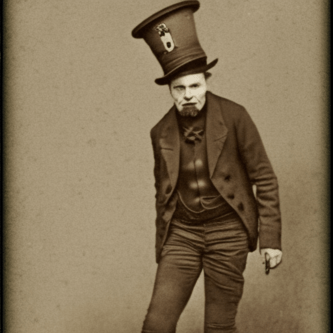
NOTE: Click here for part one if you missed it last month
No Worst, There is None
The poem “No Worst, There is None” expresses Hopkins' pain and depression caused by his and society’s failings. This “Terrible Sonnet” imparts a grim mood and desolate tone:
1 No worst, there is none. Pitched past pitch of grief,
2 More pangs will, schooled at forepangs, wilder wring.
3 Comforter, where, where is your comforting?
4 Mary, mother of us, where is your relief?
5 My cries heave, herds-long, huddle in a main, a chief
6 woe, world sorrow; on an age-old anvil wince and sing—
7 Then lull, then leave off. Fury had shrieked “No ling
8 ering! Let me be fell: force I must be brief.”
9 O the mind, mind has mountains; cliffs of fall
10 Frightful, sheer, no-man-fathomed. Hold them cheap
11 May who ne’er hung there. Nor does long our small
12 Durance deal with that steep or deep. Here! creep,
13 Wretch, under a comfort serves in a whirlwind: all
14 Life death does end and each day dies with sleep.
The poem catalogs the extreme internal anguish felt by Hopkins. He attempts to impart to the reader the magnitude of the pain he feels. He wishes to express his pain, and finds it nearly inexpressible. Hopkins concedes to the fact that people may ignore his lamentations because the lamentations deal with the pain that lies outside the normal sphere of experience (12). During their “durance,” or life, the average person never deals with such an intense psychological pain so “steep or deep,” and therefore won't fully empathize with Hopkins’ pain.

Hopkins concedes that those “who ne’er hung” around his “cliffs” of anguish will probably view them as trivialities, or "hold them cheap,” and blow off his lamentations (11). Nonetheless, Hopkins tries his best to express the extreme internal anguish he experiences.
The first half of the poem’s opening line: “No Worst, there is None’’— repeats the title of the poem and gives insight into the degree of Hopkins' pain (1). Hopkins uses “worst” to describe the degree of his pain. When he writes “No Worst” he signals that his pain and hardships become increasingly more severe with the march of time, with no end -- or even plateau —- in sight. Pain increases in intensity for the speaker in a matter analogous to the straining action of raising the pitch on a musical instrument (Ellis 267). “Pitched past pitch of grief,” the temples burst in an attempt to get more air through the saxophone; the strings on the guitar snap while the tuning knobs twist to immobility (1). Tightness, strain, tension, and chaos exponentially distend to an unbearable degree for the speaker... and then commence infinitely further. Agony begets agony in the speaker’s life, “more pangs will, schooled at forepangs, wilder wring” (2). MacKenzie writes:
the word pangs reminds us of some of the highest levels of pain experienced by human beings— a woman in childbirth, or a soldier dying of wounds; schooled personifies the pangs into professionally trained torturers (177: Italics his)
Hopkins’ suffering turns him into a beast, with his “cries heav[ing], herds-long”— i.e., like sheep bleating in imitation of one another after a long journey (5). Hopkins also hints at sporadic breaks in his torture, at the moments when his cries “lull, then leave off” (7). The lulls add to his misery because they hint at the inevitable, unrivaled, and unprecedented afflictions that lurk around the corner.
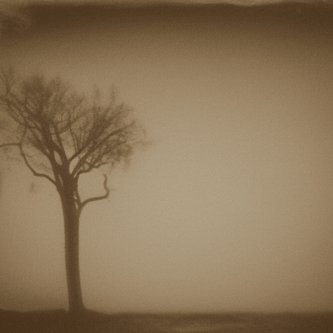
The Speaker falls upon a selfdestructive attitude. He says “Here! creep/ Wretch, under a comfort serves in a whirlwind: all / Life death does end and each day dies with sleep” (12-14). The finite nature of life provides the only comfort in the Speaker's life. Death allows him to escape the misery of life, and until then, he uses the living death of sleep to escape. The speaker’s suicidal view that contentment exists only after death appears nihilistic.
The seemingly Job-esque lines of: “Comforter, where, where is your comforting?/ Mary, mother of us, where is your relief?” in “No Worst” (4-5) further hint of a potential nihilistic streak in Hopkins. Do these two lines indicate alienation and resentment towards God? They do not. Hopkins says flat out that, in his entire life, he never loses faith in God. He doesn’t even have moments of Job-like skepticism. In The Sermons and Devotional Writings of Gerard Manley Hopkins, Hopkins writes long after the completion of the “Terrible Sonnets”:
I was a Christian from birth or baptism, later I was converted to the Catholic faith, and am enlisted 20 years in the Society of Jesus. I am now 44. I do not waver in my allegiance, I never have since my Conversion to the Church (261: Italics Mine)
We must reject counterarguments that claim the distance between the speaker and the poet nullifies any use of Hopkins’ history to explain the poem’s intent. MacKenzie writes that “Hopkins frequent declarations that a writer should be ‘in earnest’ and not use a theme for trying style on’” should dissuade “critics whose canons of interpretation forbid them to read any poem as basically autobiographical” (170).
Comforter, where, where is your comforting?
“Comforter, where, where is your comforting?” (3) does not declare an indignant loss of faith, but rather a lamentation by Hopkins regarding his own inability to “enact the gradual attainment of colloquy with God” (Harris xiii). The line describes Hopkins’ “failure to achieve the climactic and redemptive colloquy with Christ which, he knew, Ignatius and others stipulated should” come naturally to a priest (Harris 3). A Priest must perform the functions that Christ did while on Earth. Given the severity of this responsibility, Priests should have a special relationship with God, to properly perform His Sacraments.
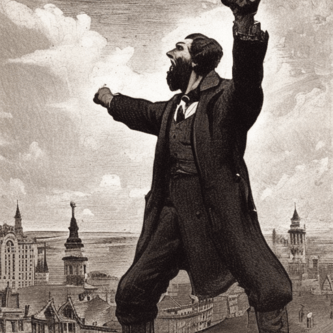
In his mind, Hopkins' relationship with Christ falls short, and this leads to thoughts of failed duty. This perceived failure leads to anguish for the Jesuit Priest. The line “O the mind, mind has mountains: cliffs of fall/ Frightful, sheer, no-man-fathomed...” (9-10) connects Hopkins' anguish to his “failings” in duty. Something in Hopkins' mind causes his pain and he attempts to identify the source. He likens his in-depth rumination and self-analysis to mountaineering. His mental gropings cause him to tumble down into a dark valley of his soul to a place he previously has never seen, imagined, or “fathomed” (10). In this dark corner of his soul, he finds a hatred of modern man, a product of life in the city. Hatred stands counter to his priestly nature.
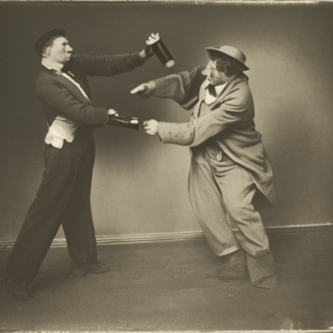
In regards to an absent “comforter,” Harris attributes Christ's absence not to His own accord, but rather because the modem man excised Him from his world (34). Modem man’s creation of the city and destruction of nature leaves “the world to be reshapen in licentious metamorphosis according to human will,” thereby “withdraw[ing] the divine breath” (Harris 34). Harris writes, “‘the fact,’ as St. Ignatius puts it ‘of God’s being in every creature by essence, presence and power’ was no longer an emotional reality to Hopkins, though he sturdily maintained it in principle” (34). Mankind's ability to push the divine out of his machinations yields “a chief-/ woe, world-sorrow; ... an age old anvil...” that hearkens back to the original sin of Eden and the associated apple-eating (5-6).
[Carrion Comfort]
We also see to eat or not to eat at the beginning of “[Carrion Comfort]:”
1 Not, I’ll not, carrion comfort, Despair, not feast on thee,
2 Not untwist— slack they may be —these last strands of man
3 In me or, most weary, cry I can no more. I can;
4 Can something, hope, wish day come, not choose not to be.
Hopkins refuses to gorge on despair to comfort himself from the pain after a battle. The poem opens with Hopkins proclaiming “Not, I’ll not, carrion comfort, Despair, not feast on thee” (1). He refuses to lose his humanity and scavange on rotting flesh.
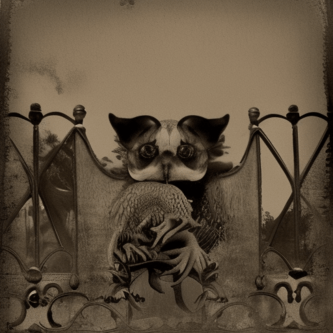
Hopkins clings to his remaining faint flicker of humanity and says “Not untwist—slack they may be—these last strands of man/ in me” (2-3). Hopkins also refuses to regress into a state of spiritual cannibalism. He wants to avoid the temptation of self-consuming pity and fully-immersive wallowing to attain comfort in life. He won’t indulge his depressive tendencies.
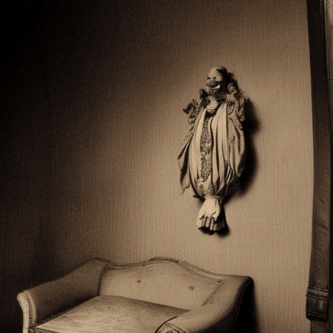
After the opening quatrain, “[Carrion Comfort]” seems Job-esque in nature. Hopkins slings questions at God, in seemingly the same manner that Job does:
5 But ah, but O thou terrible, why wouldst thou rude on me
6 Thy wring-world right foot rock? lay a lionlimb against me? scan
7 With darksome devouring eyes my bruised bones? and fan,
8 O in turns of tempest, me heaped there; me frantic to avoid thee and
flee?
These lines tempt a Job comparison. Like The Book of Job, the poem contains a battle. Hopkins uses the verb “fought” in line 13. The second quatrain of the poem conveys a disparaging attitude of Hopkins toward his adversary. He calls his adversary “thou terrible” (5). Hopkins wages battle against some seemingly omnipotent entity. The adversary's foot can wring the entire world with his “wring-world right foot” (6) (Norton Anthology 1551). The “lionlimb” of the adversary connotes divinity. Passages in the bible compare Jesus to a Lion on certain occasions. The Adversary's divine lung power sends “tempests” and other bombardments of nature at Hopkins’ cowering, “heaped” body (8). The Adversary's “darksome devouring eyes... scan,” alludes to God’s ability to watch over and judge all human actions (6).
Like the epilogue of The Book of Job, The sextet of “(Carrion Comfort]” indicates a resolution:
9 Why? That my chaff might fly: my grain lie, sheer and clear.
10 Nay in all that toil, that coil, since (seems) I kissed the rod,
11 Hand rather, my heart lol lapped strength, stole joy, would laugh, cheer.
12 Cheer whom though? The Hero whose heaven-handling flung me, foot
13 Me? or me that fought him? O which one? is it each one? That night,
that year
14 Of now done darkness I wretch lay wrestling with (my God!) my God.
Hopkins acknowledges a resolution, saying “Nay in all that toil, that coil, since (seems) I kissed the rod/ Hand rather, my heart lo! lapped strength, stole joy, would laugh, cheer” (10-11). He ends the battle, and humbles himself to his adversary, and this yields satisfaction. The Adversary's torture purifies Hopkins. Monks wear hairshirts and whip themselves in an attempt to emulate the physical suffering that Christ felt on earth. Their pain leads them to believe they can come closer to Him during times of weakness. “The hero[’s]... heavenhandling fl[ings]” Hopkins into a state of humility and repentance. Hopkins closes with “...That night, that year/ Of now done darkness I wretch lay wrestling with (My God!) my God” (13-14). He insinuates an end to his year of darkness, his year of darkness, his year of wrestling with his adversary.
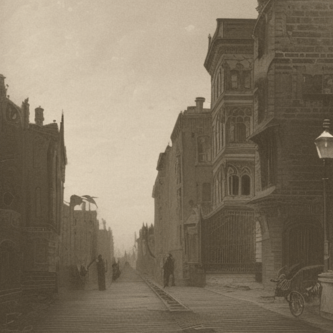
Can we call the speaker of the poem a Job analog? Like Job, Hopkins questions his creator, God punishes him, Hopkins humbles himself, and then Hopkins rekindles his faith. We must look deeper to find the answer. God strikes Job, a completely pious man, with a disease that causes Job to protest. In his protests, Job "reminds" God of his piety and goodness as a human. He asks God why someone so pious should suffer. The speaker of “[Carrion Comfort]” however, differs in his protests. The speaker instead reminds God of His strength and Omnipotence and then compares it to his own weakness and patheticness. He asks God what satisfaction an Omnipotent entity could derive from destroying a futile peon. He calls God “Thou Terrible,” and "reminds" him of His strength (5).
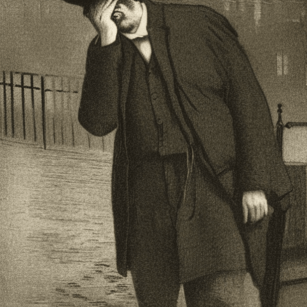
The speaker’s argument, therefore, reminds one not of the pious Job, but rather of a sinner threatened with a sentence of eternal damnation begging for clemency. The speaker does not wage a philosophical battle, he does not ask why the pious should suffer. Instead, the speaker wages a battle to save his soul through an appeal to his Judge’s sense of fairness. In the speaker, we do not see a philosophical logician who lost faith in God on some “principle.” Instead, we see a panicked, irrational child scared for the fate of his eternal life.
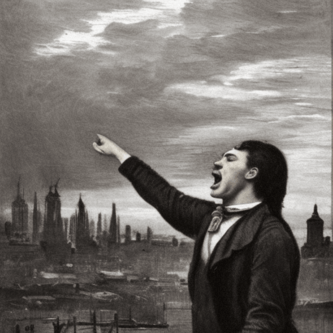
He stammers off his pathetic attacks one after another, in a futile, animal-like manner. Once his head clears, he realizes the idiocy of his actions, and humbles himself to God, grateful for the fact that God chose not to punish his insolence. Under such rationale, the first quatrain still makes sense. It deals with Hopkins’ refusal to ever descend into that state of maddening insolence, marked by the second quatrain, ever again. When Hopkins calls God “terrible,” he means “one who instills awe” (5). He says “terrible” not to insult, but instead to "remind" God of the fear He instills in Hopkins.
Hopkins fears for his eternal life in the second quatrain and makes panicked, if not misguided, attempts to save it. His inability to live up to his Jesuit priest duties threatens his eternal life. Martin agrees with this reading and writes that the Terrible Sonnets “do not reflect doubt of the existence of God but a belief in something far more terrifying, the certainty that He exists and an almost equal certainty that His mercy does not extend to the poet himself’ (382). He further says that for “Terrible Sonnets, the inspiration comes directly out of terror and does not really transcend it” (Martin 382).
Works Cited:
- Abrams, M.H [ed.]. The Norton Anthology of English Literature: Volume Two. 6th ed. New York: W.W. Norton & Company, 1993.
- Bergonzi, Bernard. Gerard Manley Hopkins. New York: Collier Books, 1977.
- Bristow, Joseph. “’Churlsgrace’: Gerard Manley Hopkins and the workingclass male body." Victorian Poetry 59(1992):693-711.
- Clausen, Christopher. “Whitman, Hopkins, and The World’s Splendor.” The Sewanee Review 105(1997): 175-88.
- Daly, Mary. “Dublin in the 1880’s.” The Hopkins Quarterly 14(1987-1988): 95-103.
- Ellis, Virginia Ridley. Hopkins and the Language of Mystery. London: University of Missouri Press, 1991.
- Harris, Daniel A. Inspirations Unbidden: The‘Terrible Sonnets" of Gerard Manley Hopkins. University of California Press: Berkeley, 1982.
- Hopkins, Gerard Manley. Correspondence of Gerard Manley Hopkins and Richard Watson Dixon. Edited by Claude Colleer Abbot. 2nd ed. London: Oxford University Press, 1970.
- ---. Further Letters of Gerard Manley Hopkins, Including his Correspondence with Coventry Patmore. Edited by Claude Colleer Abbot. 2nd ed. London: Oxford University Press, 1970.
- ---. Journals and Papers of Gerard Manley Hopkins. Edited by Humphrey House and Graham Storey. 2nd ed. London: 1959.
- ---. Letters of Gerard Manley Hopkins to Robert Bridges. Edited by Claude Colleer Abbot. 2nd ed. London: Oxford University Press, 1970.
- ---. Poems of Gerard Manley Hopkins. Edited by Charles Williams. 2nd ed. London: Oxford University Press, 1937.
- ---. Sermons and Devotional Writings of Gerard Manley Hopkins. Edited by Christopher Delvin, S.J.. London: Oxford University Press, 1959.
- MacKenzie, Norman H. A Reader's Guide to Gerard Manley Hopkins. Thames & Hudson: London, 1981.
- Martin, Robert Bernard. Gerard Manley Hopkins: A Very Private Life. New York: G.P. Putnam’s Sons, 1991.
- Roberts, Gerald. “Hopkins and The Conditions of England.” The Hopkins Quarterly 14(1987-1988): 112-126.
- Thesing, William B. “Gerard Manley Hopkins’ responses to the City: The ‘composition of the crowd.’” Victorian Studies 30(1987): 385-408.